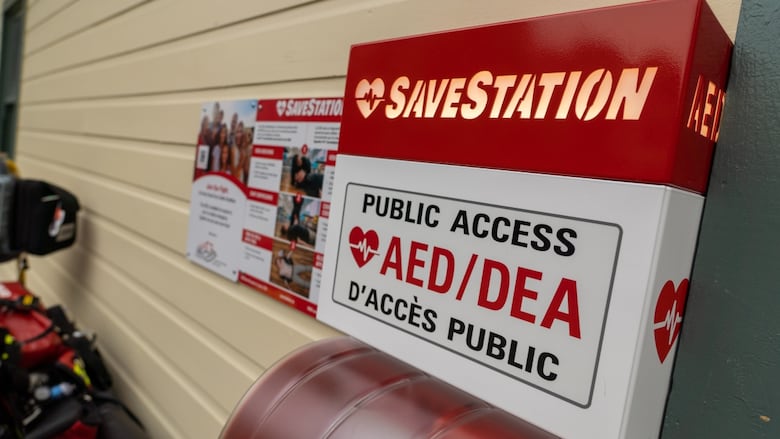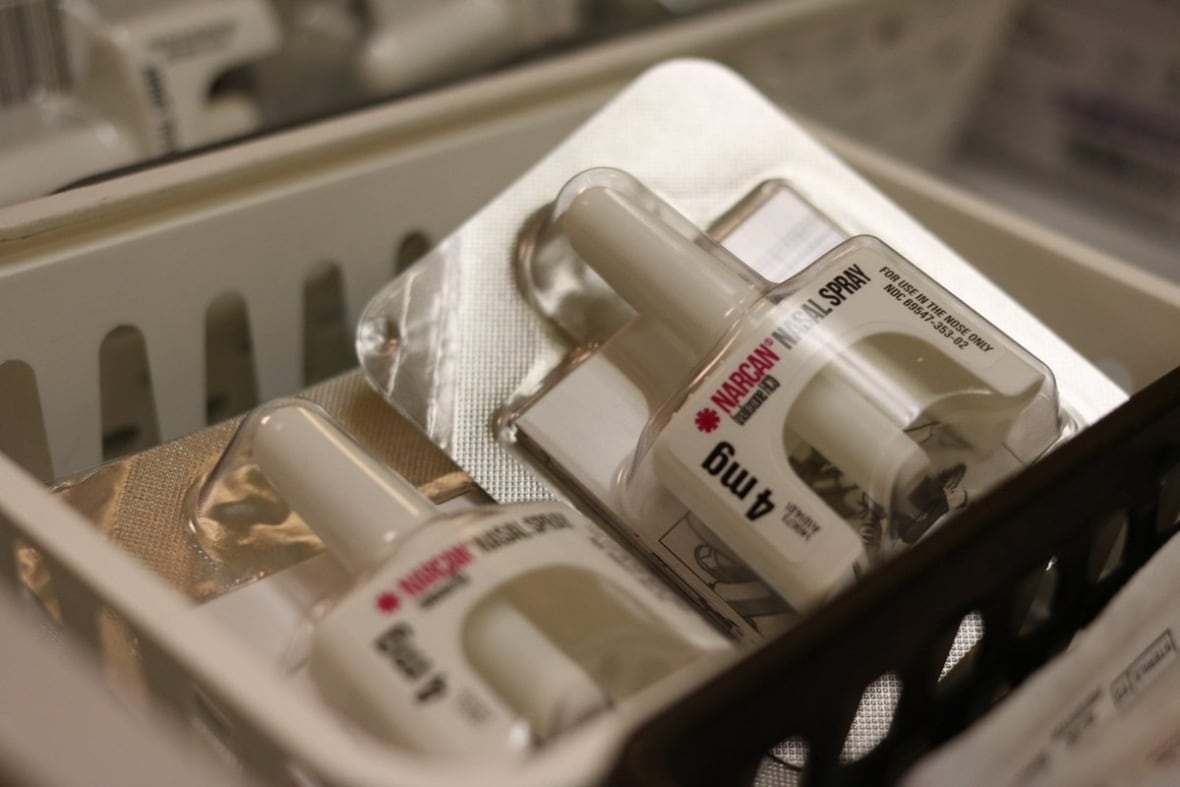Naloxone kits, defibrillators to be required in all B.C. high schools by December
Students will be taught CPR and defibrillator use, but schools aren't required to provide naloxone training

Naloxone kits and defibrillators will be required in all secondary schools in British Columbia by the end of the year.
The change is part of an updated health emergencies policy from the province that will also see Grade 10 students trained in first aid during gym class, beginning in September.
Students will be taught CPR and how to use automated external defibrillators (AEDs), but schools will not be required to provide naloxone training, according to the Ministry of Education and Childcare.
The ministry thanked the family of Sidney McIntyre-Starko, an 18-year-old UVic student who died last year from opioid poisoning, as well as all students and parents who have advocated for the changes.
Tobias Zhang says he is happy about the update. The Grade 12 student at Point Grey Secondary in Vancouver has been an advocate for AEDs in schools since his friend died after going into cardiac arrest at school three years ago.
"There was no AED to help save my friend when he needed one," he said.
A year after his friend died, Zhang founded a group to fundraise for the installation of an AED at his school.
He says it took another year of meeting with school board chairs for the Vancouver School Board to accept his group's donation of about $14,000. In May, the board earmarked $250,000 of its own budget to purchase and install AEDs in all the district's facilities by September.
More training needed
Leslie McBain, co-founder of Moms Stop the Harm, commends the decision to stock schools with naloxone kits.
"If someone does lose consciousness or go down from an overdose of toxic drugs, their life could probably be saved with naloxone," she said.
However, she says she's disappointed that schools won't be required to train students on how to use the life-saving kits.
She says that while giving nasal naloxone isn't complicated, training is essential because every second counts when someone is experiencing an overdose.

"Until we get a safe supply of drugs in its many variations, those toxic drugs are going to be out there, and overdose is a potential outcome," she said.
More than 16,000 people have died from the toxic drugs crisis since B.C. declared it a public health emergency in 2016, over 200 of them under the age of 19.
McBain says she thinks naloxone training could also make students more alert to the risks of using substances and serve as an educational intervention to prevent overdoses.
Abbotsford going a step further
In the Abbotsford School District, students will get that extra education. They will be trained on how to administer naloxone, as well as perform CPR and use an AED, according to superintendent Nathan Ngieng.
Ngieng says he believes naloxone kits are an important safety measure.
"We've seen incidents of overdose death in Abbotsford here, so equipping young people to respond in those emergency situations is really important," he said.
He says Abbotsford schools have already had AEDs for close to 10 years, and one has already been used to save a student's life.
"Because we've had a real-life application, it really hits home for us in terms of understanding how this simple act of including this learning standard could save the life of a student or individual," he said.
By 2026, all elementary and middle schools in the province will also be required to have AEDs and naloxone kits.
With files from Rafferty Baker


